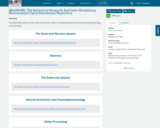
The BRAINOER modules contain OER resources for students studying behavioral neuroscience, psychophysiology, and physiology.
- Subject:
- Biology
- Psychology
- Material Type:
- Lecture
- Reading
- Textbook
- Author:
- Amber Harris Bozer
- Date Added:
- 11/18/2022

The BRAINOER modules contain OER resources for students studying behavioral neuroscience, psychophysiology, and physiology.
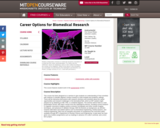
This course has been designed as a seminar to give students an understanding of how scientists with medical or scientific degrees conduct research in both hospital and academic settings. There will be interactive discussions with research clinicians and scientists about the career opportunities and research challenges in the biomedical field, which an MIT student might prepare for by obtaining an MD, PhD, or combined degrees. The seminar will be held in a case presentation format, with topics chosen from the radiological sciences, including current research in magnetic resonance imaging, positron emission tomography and other nuclear imaging techniques, and advances in radiation therapy. With the lectures as background, we will also examine alternative and related options such as biomedical engineering, medical physics, and medical engineering. We'll use as examples and points of comparisons the curriculum paths available through MIT's Department of Nuclear Science and Engineering. In past years we have given very modest assignments such as readings in advance of or after a seminar, and a short term project.
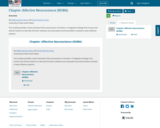
By Eddie Harmon-Jones and Cindy Harmon-Jones, University of New South Wales. This module provides a brief overview of the neuroscience of emotion. It integrates findings from human and animal research to describe the brain networks and associated neurotransmitters involved in basic affective systems.
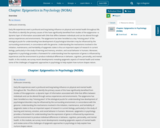
By Ian Weaver, Dalhousie University. Early life experiences exert a profound and long-lasting influence on physical and mental health throughout life. The efforts to identify the primary causes of this have significantly benefited from studies of the epigenome—a dynamic layer of information associated with DNA that differs between individuals and can be altered through various experiences and environments. The epigenome has been heralded as a key “missing piece” of the etiological puzzle for understanding how development of psychological disorders may be influenced by the surrounding environment, in concordance with the genome. Understanding the mechanisms involved in the initiation, maintenance, and heritability of epigenetic states is thus an important aspect of research in current biology, particularly in the study of learning and memory, emotion, and social behavior in humans. Moreover, epigenetics in psychology provides a framework for understanding how the expression of genes is influenced by experiences and the environment to produce individual differences in behavior, cognition, personality, and mental health. In this module, we survey recent developments revealing epigenetic aspects of mental health and review some of the challenges of epigenetic approaches in psychology to help explain how nurture shapes nature.
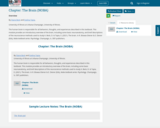
By Diane Beck and Evelina Tapia, University of Illinois at Urbana-Champaign, University of Illinois.The human brain is responsible for all behaviors, thoughts, and experiences described in this textbook. This module provides an introductory overview of the brain, including some basic neuroanatomy, and brief descriptions of the neuroscience methods used to study it. Beck, D. & Tapia, E. (2021). The brain. In R. Biswas-Diener & E. Diener (Eds), Noba textbook series: Psychology. Champaign, IL: DEF publishers.
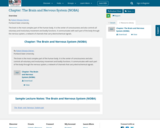
By Robert Biswas-Diener, Portland State University. The brain is the most complex part of the human body. It is the center of consciousness and also controls all voluntary and involuntary movement and bodily functions. It communicates with each part of the body through the nervous system, a network of channels that carry electrochemical signals.
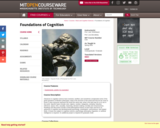
Advances in cognitive science have resolved, clarified, and sometimes complicated some of the great questions of Western philosophy: what is the structure of the world and how do we come to know it; does everyone represent the world the same way; what is the best way for us to act in the world. Specific topics include color, objects, number, categories, similarity, inductive inference, space, time, causality, reasoning, decision-making, morality and consciousness. Readings and discussion include a brief philosophical history of each topic and focus on advances in cognitive and developmental psychology, computation, neuroscience, and related fields. At least one subject in cognitive science, psychology, philosophy, linguistics, or artificial intelligence is required. An additional project is required for graduate credit.
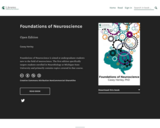
Foundations of Neuroscience is aimed at undergraduate students new to the field of neuroscience. The first edition specifically targets students enrolled in Neurobiology at Michigan State University and primarily contains topics covered in that course.

Emphasis will be placed upon application of psychological knowledge to daily situations, and upon accessing and assessing information from a variety of sources about behavior. Skills in scientific reasoning and critical thinking will be developed during this course. Areas of psychology to be included are: research methods, neuroscience, human development, perception, consciousness, learning, memory, intelligence, motivation, emotion, personality, psychological disorders, psychotherapy, stress and health, and social psychology.Login: guest_oclPassword: ocl
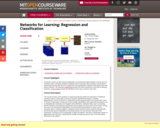
The course focuses on the problem of supervised learning within the framework of Statistical Learning Theory. It starts with a review of classical statistical techniques, including Regularization Theory in RKHS for multivariate function approximation from sparse data. Next, VC theory is discussed in detail and used to justify classification and regression techniques such as Regularization Networks and Support Vector Machines. Selected topics such as boosting, feature selection and multiclass classification will complete the theory part of the course. During the course we will examine applications of several learning techniques in areas such as computer vision, computer graphics, database search and time-series analysis and prediction. We will briefly discuss implications of learning theories for how the brain may learn from experience, focusing on the neurobiology of object recognition. We plan to emphasize hands-on applications and exercises, paralleling the rapidly increasing practical uses of the techniques described in the subject.
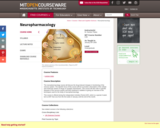
" The neuropharmacology course will discuss the drug-induced changes in functioning of the nervous system. The specific focus of this course will be to provide a description of the cellular and molecular actions of drugs on synaptic transmission. This course will also refer to specific diseases of the nervous system and their treatment in addition to giving an overview of the techniques used for the study of neuropharmacology. This course is offered during the Independent Activities Period (IAP), which is a special 4-week term at MIT that runs from the first week of January until the end of the month."
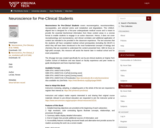
Neuroscience for Pre-Clinical Students covers neuroenergetics, neurotransmitters, neuropeptides, and selected amino acid metabolism and degradation. This USMLE-aligned text is designed for a first-year undergraduate medical course and is meant to provide the essential biochemical information from these content areas in a concise format to enable students to engage in an active classroom. Hence, it does not cover neurophysiology and neuroanatomy; and clinical correlates and additional application of content are intended to be provided in the classroom experience. The text assumes that the students will have completed medical school prerequisites (including the MCAT) in which they will have been introduced to the most fundamental concepts of biology and chemistry that are essential to understand the content presented here. With its focus on high-yield concepts, this resource will assist the learner later in medical school and for exam preparation.
The 49-page text was created specifically for use by pre-clinical students at Virginia Tech Carilion School of Medicine and was based on faculty experience and peer review to guide development and hone important topics.
Available Formats
ISBN 978-1-949373-80-6 (PDF)
ISBN 978-1-949373-81-3 (ePub) [coming soon]
ISBN 978-1-949373-84-4 (print) [coming sooon]
ISBN 978-1-949373-82-0 (Pressbooks) https://pressbooks.lib.vt.edu/neuroscience
Also available via LibreTexts: https://med.libretexts.org/@go/page/35685
How to Adopt this Book
Instructors reviewing, adopting, or adapting parts or the whole of the text are requested to register their interest at: https://bit.ly/interest-preclinical.
Instructors and subject matter experts interested in and sharing their original course materials relevant to pre-clinical education are requested to join the instructor portal at https://www.oercommons.org/groups/pre-clinical-resources/10133.
Features of this Book
1. Detailed learning objectives are provided at the beginning of each subsection;
2. High resolution, color contrasting figures illustrate concepts, relationships, and processes throughout;
3. Summary tables display detailed information;
4. End of chapter lists provide additional sources of information; and
5. Accessibility features including structured heads and alternative-text provide access for readers accessing the work via a screen-reader.
Table of Contents
1. Neuron and astrocyte metabolism
2. Neurotransmitters — ACh, glutamate, GABA, and glycine
3. Neuropeptides and unconventional neurotransmitters
4. Amino acid metabolism and specialized products
Suggested Citation
LeClair, Renée J., (2022). Neuroscience for Pre-Clinical Students, Blacksburg, VA: Virginia Tech Publishing. https://doi.org/10.21061/neuroscience. Licensed with CC BY NC-SA 4.0.
About the Author
Renée J. LeClair is an Associate Professor in the Department of Basic Science Education at the Virginia Tech Carilion School of Medicine, where her role is to engage activities that support the departmental mission of developing an integrated medical experience using evidence-based delivery grounded in the science of learning. She received a Ph.D. at Rice University and completed a postdoctoral fellowship at the Maine Medical Center Research Institute in vascular biology. She became involved in medical education, curricular renovation, and implementation of innovative teaching methods during her first faculty appointment, at the University of New England, College of Osteopathic Medicine. In 2013, she moved to a new medical school, University of South Carolina, School of Medicine, Greenville. The opportunities afforded by joining a new program and serving as the Chair of the Curriculum committee provided a blank slate for creative curricular development and close involvement with the accreditation process. During her tenure she developed and directed a team-taught student-centered undergraduate medical course that integrated the scientific and clinical sciences to assess all six-core competencies of medical education.
Accessibility Note
The University Libraries at Virginia Tech and Virginia Tech Publishing are committed to making its publications accessible in accordance with the Americans with Disabilities Act of 1990. The HTML (Pressbooks) and ePub versions of this book utilize header structures and include alternative text which allow for machine-readability.
Please report any errors at https://bit.ly/feedback-preclinical
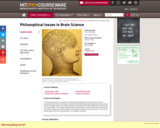
" This course provides an introduction to important philosophical questions about the mind, specifically those that are intimately connected with contemporary psychology and neuroscience. Are our concepts innate, or are they acquired by experience? (And what does it even mean to call a concept 'innate'?) Are 'mental images' pictures in the head? Is color in the mind or in the world? Is the mind nothing more than the brain? Can there be a science of consciousness? The course includes guest lectures by Philosophers and Cognitive Scientists."

Psychology is designed to meet scope and sequence requirements for the single-semester introduction to psychology course. The book offers a comprehensive treatment of core concepts, grounded in both classic studies and current and emerging research. The text also includes coverage of the DSM-5 in examinations of psychological disorders. Psychology incorporates discussions that reflect the diversity within the discipline, as well as the diversity of cultures and communities across the globe.Senior Contributing AuthorsRose M. Spielman, Formerly of Quinnipiac UniversityContributing AuthorsKathryn Dumper, Bainbridge State CollegeWilliam Jenkins, Mercer UniversityArlene Lacombe, Saint Joseph's UniversityMarilyn Lovett, Livingstone CollegeMarion Perlmutter, University of Michigan


By the end of this section, you will be able to:Explain the brain functions involved in memoryRecognize the roles of the hippocampus, amygdala, and cerebellum

This textbook provides standard introduction to psychology course content with a specific emphasis on biological aspects of psychology. This includes more content related to neuroscience methods, the brain and the nervous system. This book can be modified: feel free to add or remove modules to better suit your specific needs.Please note that the publisher requires you to login to access and download the textbooks.

Electroencephalography, or EEG, is a technique used to measure the electrical activity of the brain. In this video, I discuss the basics of EEG like what it measures, how it’s used, and some strengths and limitations.
Duration: 2:00.
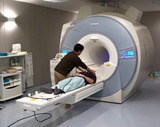
Functional magnetic resonance imaging, or fMRI, is a popular neuroimaging method that enables us to obtain images of brain activity. In this video, I discuss how fMRI works, what is represented in a typical fMRI image, and some of the methodological problems associated with the use of fMRI.
Duration: 1:59.

Long-term potentiation, or LTP, is a process by which connections between neurons become stronger with frequent activation. LTP is thought to be a way in which the brain changes in response to experience, and thus may be an mechanism underlying learning and memory. In this video, I discuss one type of LTP: NMDA-receptor dependent LTP. I outline the mechanism underlying NMDA-receptor LTP and describe how it is thought to strengthen synaptic connections where it occurs.
Duration: 1:59.